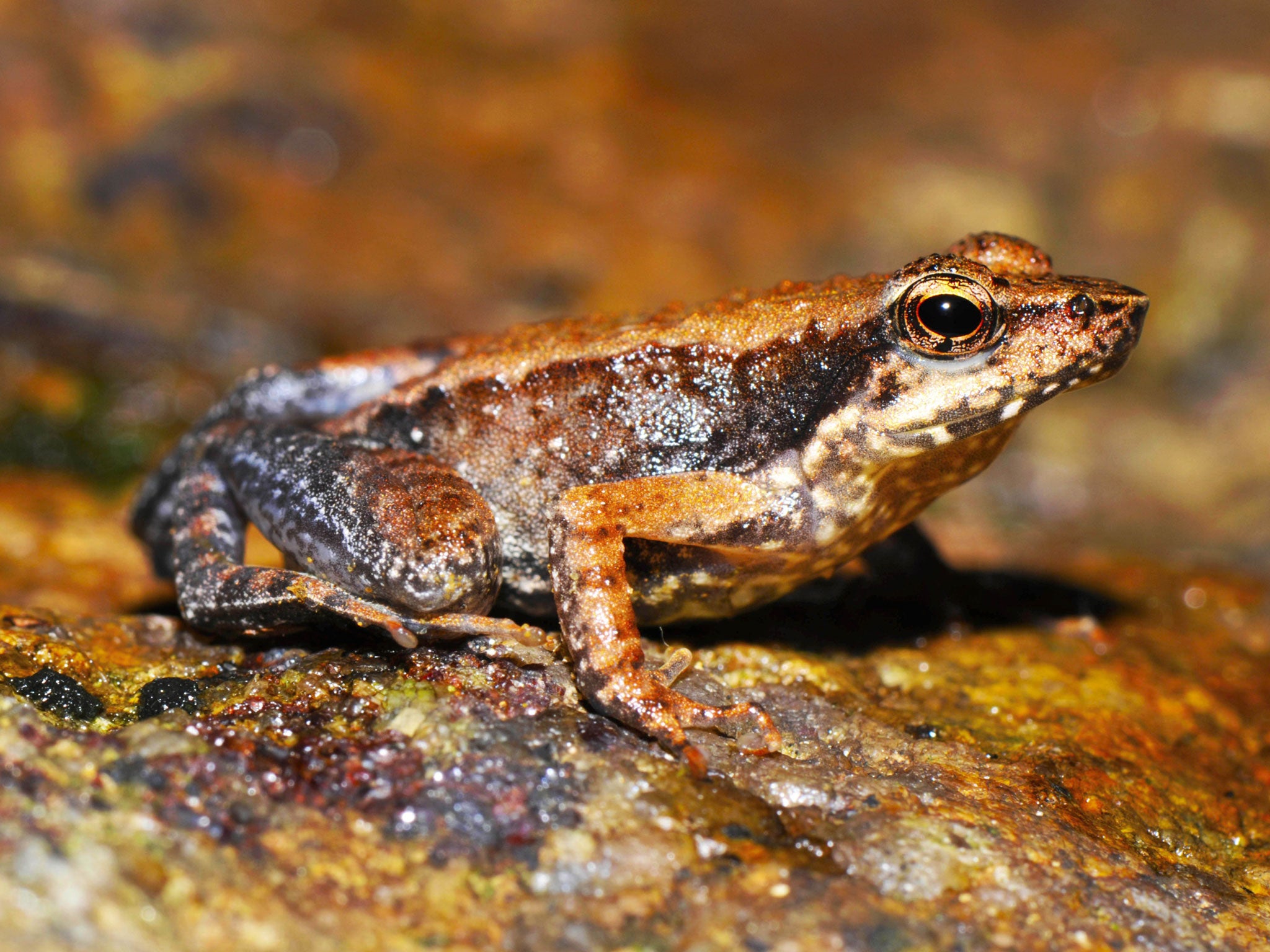Salting roads found to reverse sex of frogs
Chemicals occuring in de-icing substances could have a detrimental effect on frog populations

Salting roads and pavements during winter is harming frog populations, causing would-be female frogs to change sex, experts have warned.
Researchers from Yale University found that naturally occurring chemicals in de-icing substances, including sodium chloride, is altering the sex of female frogs during development.
In a series of experiments, scientists found that the impact can reduce frog populations by as much as 10 per cent.
The new study, published in the Canadian Journal of Fisheries and Aquatic Sciences, concluded that the “masculising” effect of the salt was likely to trigger a “sex reversal” mechanism during the early stages of frogs.
This year alone, over one million tonnes of road grit will be at the disposal of councils across the UK in the run up to winter.
An additional 383,000 tonnes is held as part of the national emergency grit reserve.
Consequently, the practice of gritting roads places doubts on the sustainability of frog populations, that are already under immense pressures.
A third of amphibian and frog species globally are threatened with extinction and in the UK, frog populations are increasingly depending on garden ponds for their habitat.
John Wilkinson, Science Programme Manager at the Amphibian and Reptile Conservation, a UK charity, told The Independent there were “a lot of pressures on amphibians globally”.
Other aspects of roads are also threatening amphibian populations, with gully pots and drains posing a “lethal” threat to British amphibians.
In response to the report Mr Wilkinson added: “This is a very new finding, we haven’t fully taken on board the long term implications.
"There is no research on this from the UK, it will be something we need to look into.”
Join our commenting forum
Join thought-provoking conversations, follow other Independent readers and see their replies
Comments
Bookmark popover
Removed from bookmarks